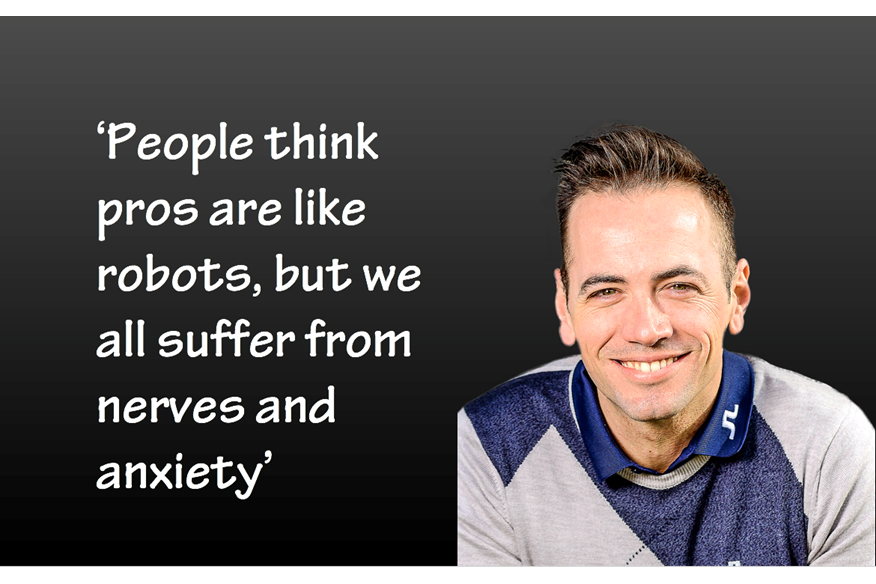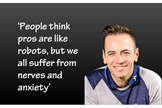Nick Dougherty: ‘People think pros are like robots, but we all suffer from nerves and anxiety’
Published:
In his latest column for TG, Nick Dougherty talks about how even the best players struggle to deal with their own inner demons on the golf course
When people ask me why I haven’t considered coming out of retirement, I only have to look at recent events on Tour to present my case. Some people seem to think that pros are like robots on the golf course and don’t feel anything, least of all nerves or anxiety. But if you watched the Turkish Open, you would have seen two pros buckling under pressure and trading bogeys for fun.
As much as I was willing Justin Rose to win and return to World No.1, it was hard to watch Haotong Li trying to keep his emotions in check after what happened on the first extra hole.
A part of me expected him to miss the 15-foot putt for the win, such was the topsy-turvy nature of their battle, but I don’t think anyone would have bet on him blocking his return putt straight right like a 28 handicapper. The only comfort Li can take is that there isn’t a player alive who hasn’t choked, and blown an opportunity to win a tournament. Tiger Woods did it at Bay Hill this year, when he had a chance to win and then hit his tee shot out of bounds on the 16th. The reality is that no one is perfect and we all make mistakes.
Ironically, Rose made just as many errors as Li did coming down the stretch, but the difference was that he got away with them. Had Li holed that 20-footer on the first extra hole, we might have been reflecting on Rose’s bogey on the 17th, or the missed putt from four feet on the 18th to avoid a play-off altogether. It just goes to show how cruel golf can be, and how success brings its own mental challenges. When Li won in Dubai, I don’t think anyone expected it to take another 10 months for him to finish in the top 10 again. But that kind of thing happens in golf and the longer a streak like that goes on, the more you think about it and the worse you play.
Danny Willett is an obvious example. When he won the Masters, everyone was expecting him to push on and make a name for himself. Instead, the pressure and expectation got too much, and sent him tumbling down the rankings. Thankfully, he’s now on the up again – and deservedly so knowing how hard he works – but his story should serve as a reminder to everyone of how debilitating stress and anxiety can be.
I know from experience what that feels like, and I still think about the time I led the 2007 Italian Open by three shots, standing on the 10th tee during the third round. The tournament had already been shortened to 54 holes and in that moment, I felt untouchable. I then committed the cardinal sin of convincing myself that the title was already won. On the next hole, I hit my first bad shot and everything snowballed from there. Negative thoughts started creeping in, I went on the defensive and then fell to pieces.
Blowing it like that really hurt, but what helped was having a good support team around me, and being able to talk through the mistakes I made so they didn’t happen again. When I was in a similar position at the Dunhill Links Championship later that year, I made a point of staying in that moment and sticking to my gameplan. Any nerves quickly dissipated and I won by two.
The good news for Li is that he appears to have found some form again, but being able to maintain that may depend on his ability to focus on the positives, not the negatives, from Turkey. It sounds easy enough, but any psychologist will tell you that it requires a certain personality trait to be able to control your insecurities and shrug off any issue as a minor road block. For some people, the recovery period lasts a few days; for others it can take months, sometimes years.
The danger for Li is that the European Tour schedule offers no let up, which means he’s got to work through his problems on the course. I was faced with something similar when my mum died, and I started taking my grief to work with me. Suddenly, the world felt like a place where only bad things happened and it didn’t take long for that mindset to affect my golf game.
As I lost all self-belief, I began psycho-analysing everything and asked everyone who would listen for help. Armed with bad advice, I made the wrong choices and ended up ruining my career. Luckily, the current generation of golfers seem much smarter and are blessed with an entourage who are there to protect them and provide emotional support. It may seem slightly excessive, but it stops people preying on players who are going through a tough time.
It even happened to me once in 2011, the same year I lost my card. A coach came up to me, and said, “I predicted your demise, and I can fix it for you.” I was getting ready to swing for them when my caddie stepped in and pulled me away. I was fragile at the time, and that nearly tipped me over the edge.
Looking back now, my one saving grace was that social media was nowhere near as big as it is now, so any judgement was usually confined to the players, coaches and caddies on Tour.
Sadly, that’s no longer the case, and it pains me to hear about players being trolled online. Sam Horsfield seems to be a popular target at the moment for the amount of time he spends over the ball, despite the fact he’s admitted it’s a mental problem. There’s no doubt he needs to speed up, but what he also needs is support, not criticism.
We’re slowly breaking the taboo around mental health, and it’s about time that changed on the golf course and we respect those who have fought or are fighting their inner demons. Put yourself in Horsfield, Willett or Li’s shoes and I’d like to think you would agree.

